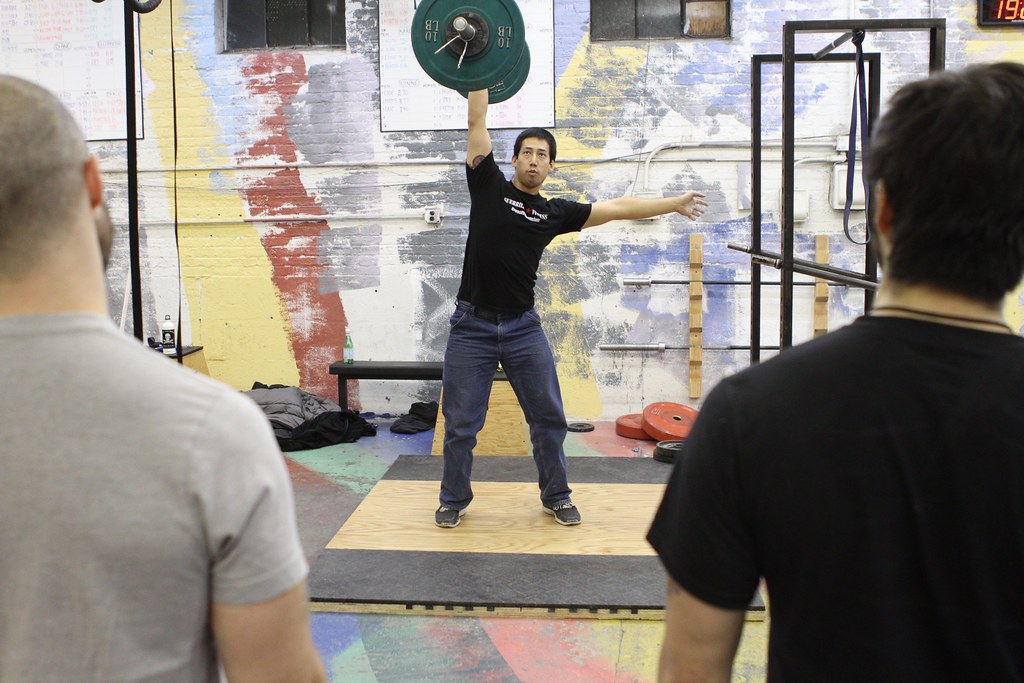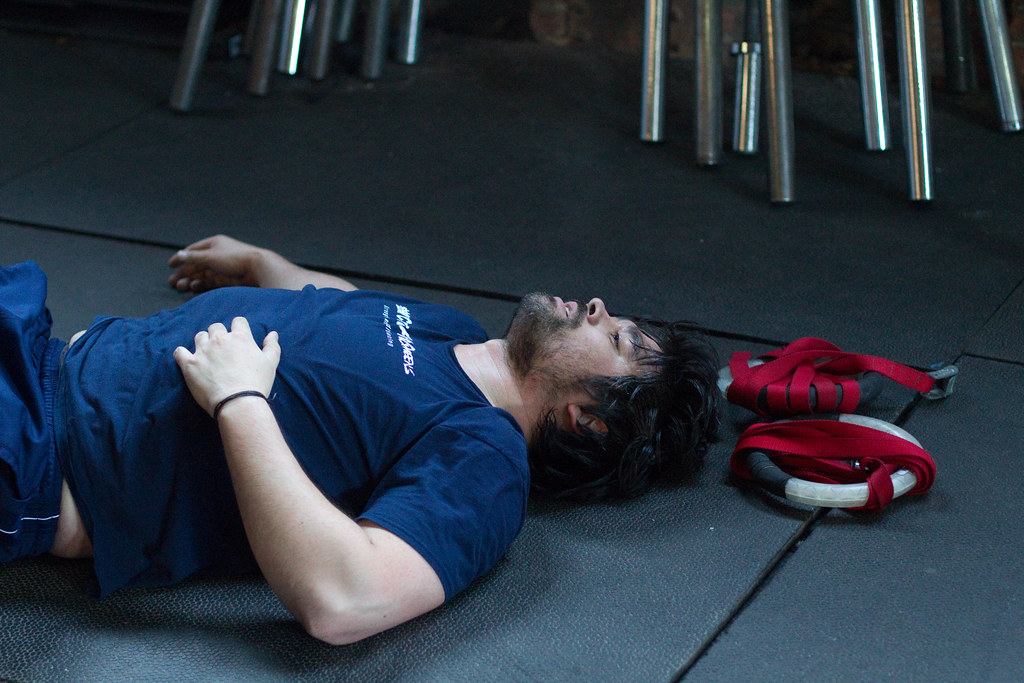
Carmelo and Ernesto work on the first coat of paint. We went with light gray accented with black and red. The community area, office and bathroom will be painted, the rest of the space will stay raw.

Now that the floors have been sealed, we can cut and lay down the mats. We've gained some square footage so we'll need to purchase more mats over the next couple months.
Raise your hand if you hate your hip flexors
See why Bitters are Better down at Margie's Local.
The Primal Quest Challengers have organized a Paleo Potluck this Saturday (1/30) at 6pm at Coach Margie's apartment. If you missed this conversation on the Google Group and you're interested, please email Margie(AT)CrossFitSouthBrooklyn.com.
What is your current musical obsession?
___________________
Great article on "Showing Up" at CrossFit Virtuosity
Why Slow Movement Builds Coordination Better Movement
Anatomical Art Lists Galore!












